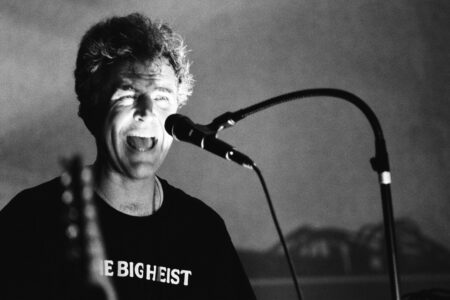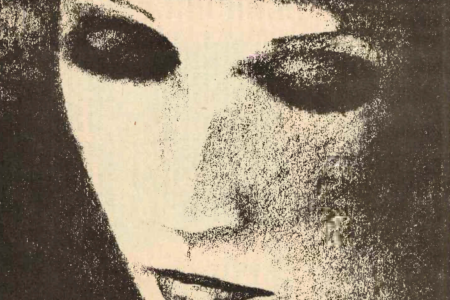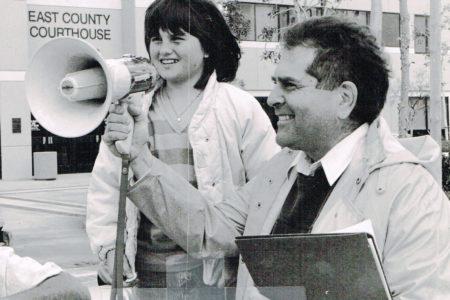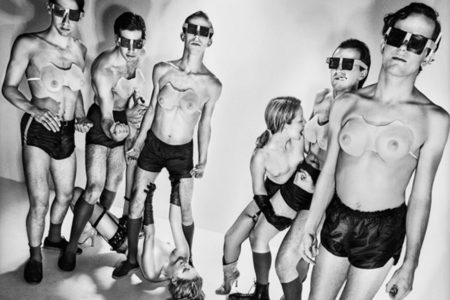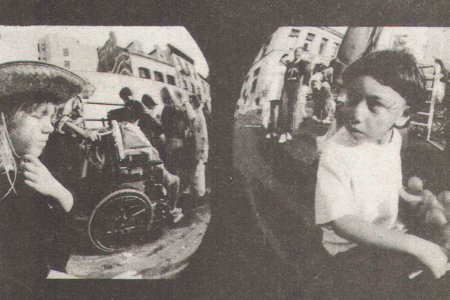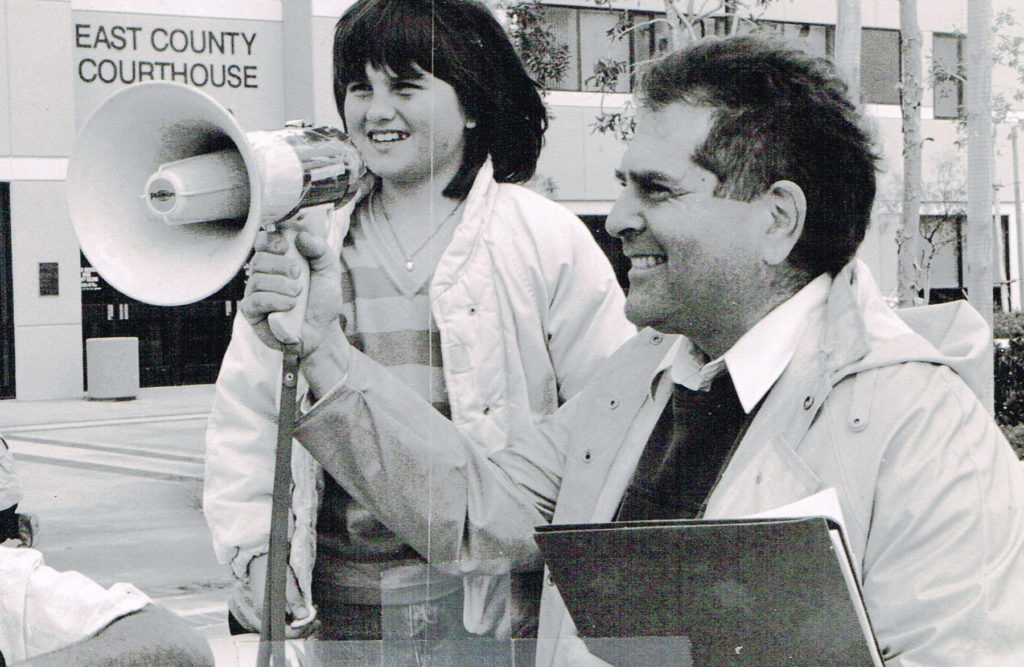
76-year-old anti-racist activist Michael Novick is a lifelong political zinester, with their longest project being the 30-year-old publication Turning the Tide. Novick has seen many waves of revolution and with every wave comes censorship from the usual parties: private corporate interests and the authorities who enforce them. Zines have served as a passageway for ideas and information across decades of media infiltration and control. “Zine culture is that crack in the concrete where the flowers can come out,” says Novick. “I have always wanted to nurture that and be a part of that sense of indie media.”
Turning the Tide (or TTT for short) is an independent paper established in 1987. It was a space for reporting racist terrorism and a resource for anti-fascists, decolonial and anti-capitalist ideologues. TTT was born during the punk and anarchist subcultures of the ’80s. For punk, itself grappling with the rise of hate groups, TTT offered access to critical information as a lifeline for self-defense movements resisting subcultures like the neo-nazi boneheads. ’90s Warp Tour, Ozzfest and Rock Against Racism became venues where Novick and Turning the Tide would station to remind fans of their scene’s radical roots. Today the paper is the most widely read publication in prisons.
After a lifetime of dedication to independent publishing, Novick is looking for a group to take over Turning the Tide. But to do that, he must return to where it all began.
Novick grew up in the San Francisco Bay Area in the ’70s and had a childhood in the heart of the Civil Rights era. Motivated by a call from the Revolutionary Peoples’ Constitutional Convention by the Black Panther Party, a network of men’s consciousness-raising groups began Brother: Men Against Sexism, a zine on gender, sexuality, race and oppression. Novick started his journey as an independent publisher alongside his peers at his Jewish high school working on Brother. “I would sit in Talmud classes when I was supposed to be saying the Talmud,” he says, “I would be counting up characters in stories so we could justify the columns.”
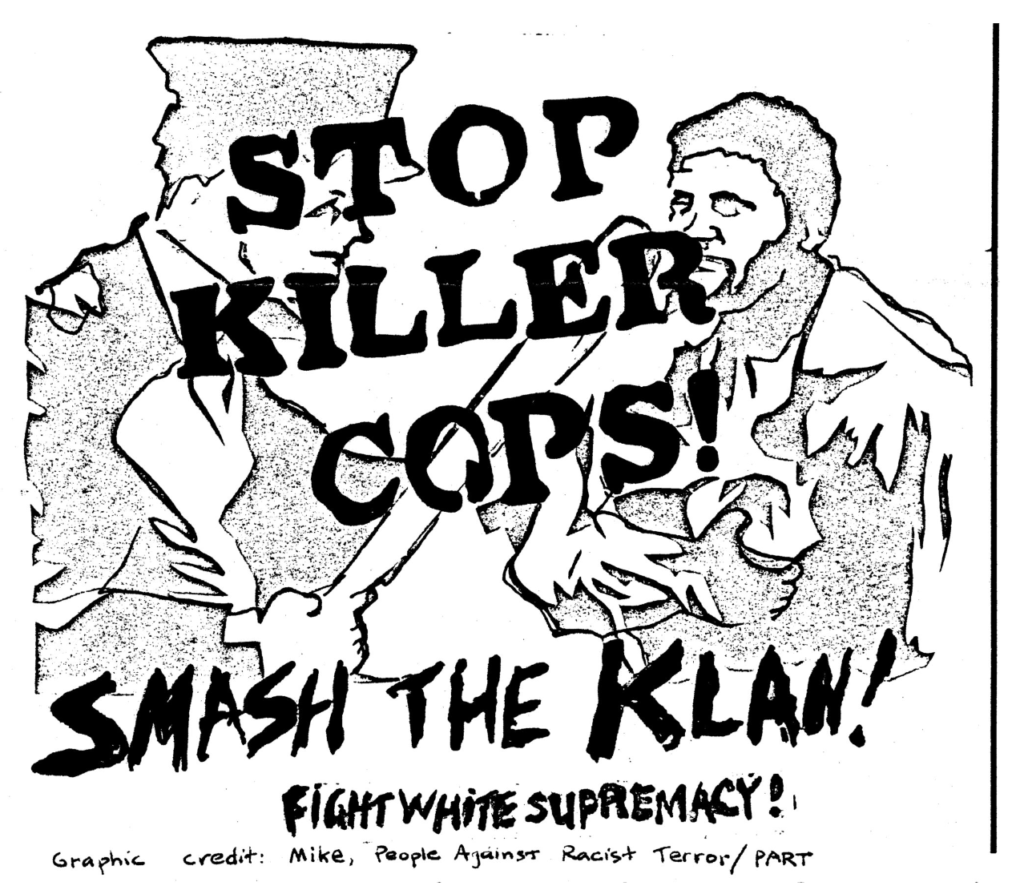 Novick and his peers would publish these papers with wax printing. “You’d have this machine that melted lines of wax and you’d physically adhere the words and images to a large poster board and then if you didn’t like it you could pull it off and change it.” The zine was distributed across the Bay Area throughout the decade. It was featured in the San Francisco Chronicle and later in Time Magazine.
Novick and his peers would publish these papers with wax printing. “You’d have this machine that melted lines of wax and you’d physically adhere the words and images to a large poster board and then if you didn’t like it you could pull it off and change it.” The zine was distributed across the Bay Area throughout the decade. It was featured in the San Francisco Chronicle and later in Time Magazine.
“I have always been someone who’s text-oriented,” says Novick. As an author and editor, he’s seen publishing evolve. When he first moved to L.A. in the ’80s, he wrote pieces for the socialist National Guardian. “I would sit under the stairs on the Commodore 64 I bought at Toys “R” Us, hooked up to my apartment’s phone line, and send drafts to my editor,” says Novick. He would then pick up bundles of the paper from a Greyhound bus down-town to distribute.
The late 80s saw a rising number of racial terrorist acts from skinheads and white power organizations that the Reagan-era media wasn’t too concerned with. Novick started a L.A. chapter of what became the Anti-Racist Action (ARA) network and its official newsletter: Turning the Tide.
Novick would hand them TTT at local punk shows and protests. As Turning the Tide grew, ARA chapters across the U.S. and Canada requested to join the mailing list.
Michael was an English teacher for mature students, many of whom were immigrants. “I learned so much from my students about the world,” he says. In the 90s, many Californians actively tried to cut Spanish language programs as conservative groups fear-mongered. Novick says there was a strong anti-immigrant sentiment, even among the teachers. “I was a union rep. I would take the papers to the union meetings and hand them out. Some people gave me flack about it, but they all knew what I was about.”
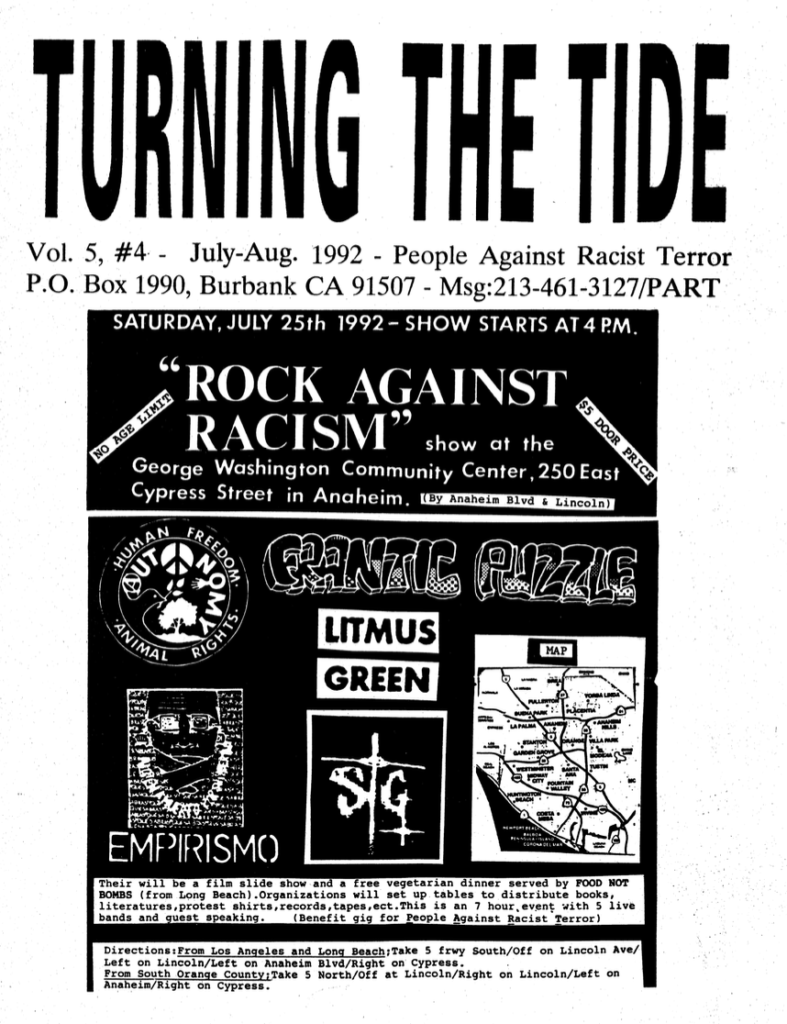 During the summer of 1998, political prisoners Linda Evans and her partner Eva Goldberg wrote a piece about the economy of mass incarceration, which later became an extensively distributed pamphlet. The piece was shared on the whistleblower website Project Censored. It played a role in developing Critical Resistance, an organization dedicated to challenging and dismantling the prison industrial complex.
During the summer of 1998, political prisoners Linda Evans and her partner Eva Goldberg wrote a piece about the economy of mass incarceration, which later became an extensively distributed pamphlet. The piece was shared on the whistleblower website Project Censored. It played a role in developing Critical Resistance, an organization dedicated to challenging and dismantling the prison industrial complex.
While Novick visited political prisoners to collaborate on pieces, many other prisoners would ask if they could get a copy of his zine, which became the catalyst for his free-to-prisoners policy. “We started sending it to political prisoners. Once word spread, hundreds of prisoners would write. Every time I went to the mailbox, I got letters asking to join the distribution list.”
Michael spoke to folks radicalized by the paper who let him know it was the only paper many prisoners were willing to read.
Another critical chapter for TTT was the infamous 1992 Rodney King trial, which sparked the L.A. Riots. One of the movements that followed called for community control of policing and abolition — demands echoed by many Black Lives Matter activists after the tragic death of George Floyd in 2020.
The ’92 movement, led by former Black Panther member Michael Zinzun, demanded radical change but they were pushed to the fringes during media coverage. Mainstream reporting favored government action like the formation of the Christopher Commission, a group of researchers jointly appointed by the mayor and police chief to investigate police violence in the Los Angeles Police Department. Turning the Tide would report on the work of Zinzun’s group and later expose the role that the Christopher Commission played in civil rights groups signing onto ineffective reforms, opposed to backing Zinzin’s more radical movement.
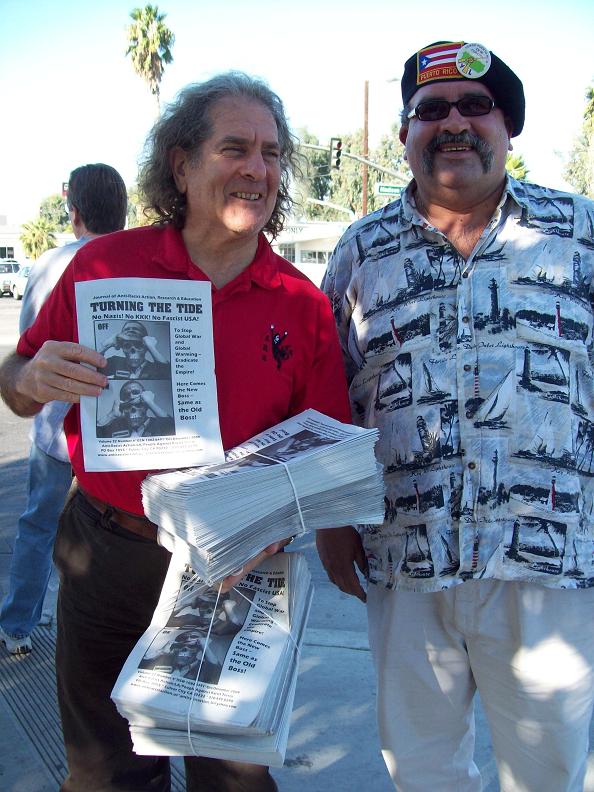 Every time people rush to action and revolutionary movements rise, those in power turn to the commercial media for help. “It’s infectious,” says Novick. “The women’s liberation movement became bourgeois feminism and white feminism. Gay liberation became gays in the military, gay marriage when that was never the point of the movement.”
Every time people rush to action and revolutionary movements rise, those in power turn to the commercial media for help. “It’s infectious,” says Novick. “The women’s liberation movement became bourgeois feminism and white feminism. Gay liberation became gays in the military, gay marriage when that was never the point of the movement.”
We forget the origins of movements because the media is quick to co-opt. “It’s an effort to patch over the contradictions that exist in our society,” but Novick pushes us further to look inward as these contradictions exist within each of us. Novick shared their perspective on the 1996 US election. Democratic Bill Clinton had been a “draft dodger” during the Vietnam War and actively protested the war, while Republican candidate Bob Dole had fought the Nazis during World War II and was left disabled. “Each had a certain claim to anti-fascism and anti-imperial-ism in their youth but sold themselves out to be the leader of the empire.”
We all need to stay grounded and consider those we stand in solidarity with. In recent years, Novick changed TTT’s tagline from ‘Anti-Racism Newsletter’ to ‘Journal of Intercommunal Solidarity’ as a reminder that continuing indie publishing creates more than movements, it builds community.
See the entire Turning the Tide archive at Antiracist.org
Vidy Oviyan is a photographer and social media manager based out of Los Angeles working on amplifying the voices of activists and progressive movements -including independent media, labour unions, climate justice, etc. They’re involved in mutual aid with an abolitionist care network and the Trans Latina Coalition educating organizations on transgender, gender-nonconforming, and intersex issues.

